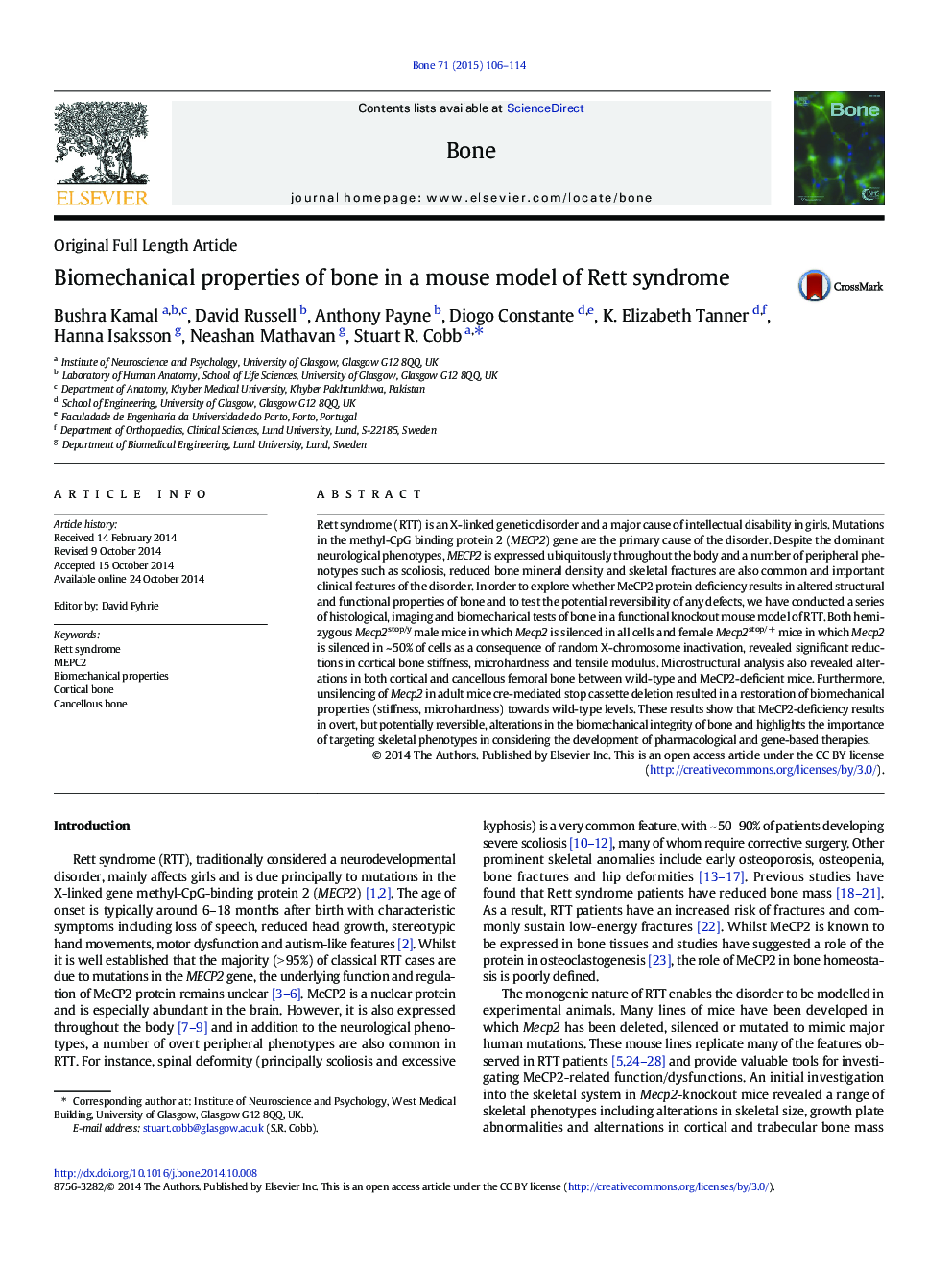| کد مقاله | کد نشریه | سال انتشار | مقاله انگلیسی | نسخه تمام متن |
|---|---|---|---|---|
| 5889805 | 1568148 | 2015 | 9 صفحه PDF | دانلود رایگان |

- Functional Mecp2 knockout mice display a range of deficits in skeletal properties including mechanical strength, stiffness and microhardness.
- Biomechanical deficits were accompanied by microstructural changes such as decreased trabecular thickness.
- Defects in biomechanical and material properties were ameliorated by unsilencing the Mecp2 gene.
Rett syndrome (RTT) is an X-linked genetic disorder and a major cause of intellectual disability in girls. Mutations in the methyl-CpG binding protein 2 (MECP2) gene are the primary cause of the disorder. Despite the dominant neurological phenotypes, MECP2 is expressed ubiquitously throughout the body and a number of peripheral phenotypes such as scoliosis, reduced bone mineral density and skeletal fractures are also common and important clinical features of the disorder. In order to explore whether MeCP2 protein deficiency results in altered structural and functional properties of bone and to test the potential reversibility of any defects, we have conducted a series of histological, imaging and biomechanical tests of bone in a functional knockout mouse model of RTT. Both hemizygous Mecp2stop/y male mice in which Mecp2 is silenced in all cells and female Mecp2stop/+ mice in which Mecp2 is silenced in ~Â 50% of cells as a consequence of random X-chromosome inactivation, revealed significant reductions in cortical bone stiffness, microhardness and tensile modulus. Microstructural analysis also revealed alterations in both cortical and cancellous femoral bone between wild-type and MeCP2-deficient mice. Furthermore, unsilencing of Mecp2 in adult mice cre-mediated stop cassette deletion resulted in a restoration of biomechanical properties (stiffness, microhardness) towards wild-type levels. These results show that MeCP2-deficiency results in overt, but potentially reversible, alterations in the biomechanical integrity of bone and highlights the importance of targeting skeletal phenotypes in considering the development of pharmacological and gene-based therapies.
Journal: Bone - Volume 71, February 2015, Pages 106-114